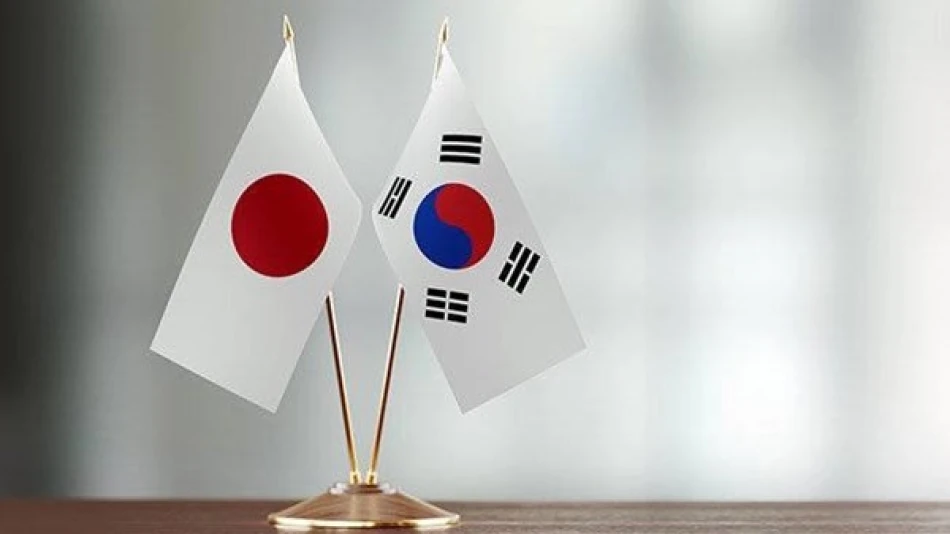
Highly Anticipated South Korea-Japan Summit in Tokyo: Diplomatic Breakthrough or Ongoing Tensions?
South Korea's New President Rushes to Rebuild Asian Alliances as Trump Returns
South Korean President Lee Jae-myung is orchestrating a diplomatic blitz across Asia and Washington, with plans for a Tokyo summit around August 23 and his first meeting with Donald Trump later this month. The accelerated diplomacy signals Seoul's urgent push to strengthen regional partnerships amid shifting geopolitical dynamics and the return of Trump's unpredictable foreign policy approach.
Tokyo Summit Marks Strategic Reset
According to Japanese media reports, Lee's office is coordinating with Japanese Prime Minister Shigeru Ishiba for a summit in Tokyo later this month. If confirmed, this would be Lee's first visit to Japan since taking office in early June, marking a resumption of "shuttle diplomacy" between the two leaders.
The timing is significant. Lee and Ishiba last met in person on June 17 during the G7 summit in Canada, where they discussed strengthening bilateral relations and trilateral cooperation with the United States. That meeting laid groundwork for deeper engagement at a time when both nations face mounting pressure from China's assertiveness in the region.
Racing Against Trump's Policy Clock
Lee's diplomatic sprint reflects South Korea's recognition that the Trump administration's return fundamentally alters the strategic landscape. Unlike his predecessor's multilateral approach, Trump has historically favored bilateral deals and transactional relationships, potentially weakening the trilateral security framework that has anchored Northeast Asian stability.
The South Korean president is expected to travel to Washington for his inaugural summit with Trump later this month, though the presidential office has not yet announced the official timeline. This meeting will likely determine whether the US-South Korea alliance maintains its current trajectory or shifts toward Trump's preferred model of burden-sharing and trade reciprocity.
Regional Implications Beyond Bilateral Ties
Lee's diplomatic offensive comes as regional powers recalibrate their strategies. Japan and South Korea have made significant progress in recent years overcoming historical grievances, driven largely by shared concerns about North Korea's nuclear program and China's military expansion in the East and South China Seas.
The stakes are particularly high for economic cooperation. Both countries are critical players in global semiconductor supply chains and face similar challenges in reducing dependence on Chinese manufacturing while maintaining access to Chinese markets. A strengthened Seoul-Tokyo partnership could provide both nations greater leverage in navigating these competing pressures.
Testing the Trilateral Framework
The real test will be whether Lee can maintain the trilateral cooperation momentum established under previous administrations. Trump's first term saw tensions over defense cost-sharing and trade imbalances that strained US relationships with both Asian allies.
However, the strategic environment has evolved significantly since Trump's previous presidency. China's military buildup, North Korea's advanced missile capabilities, and Russia's war in Ukraine have created new imperatives for allied coordination that may override Trump's transactional instincts.
Lee's diplomatic calendar over the next month will likely determine whether Northeast Asia's security architecture emerges stronger or fragments under the pressure of renewed American unilateralism.
Most Viewed News

 Layla Al Mansoori
Layla Al Mansoori






